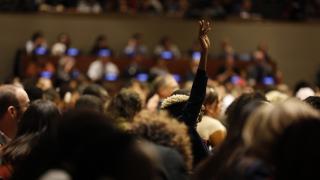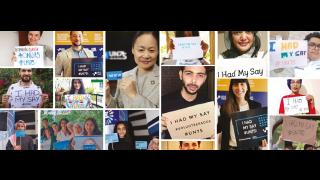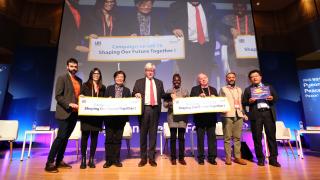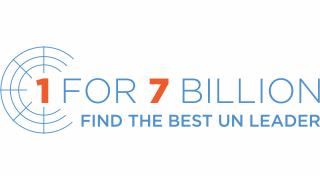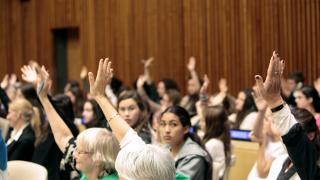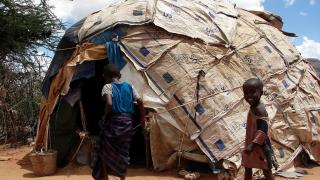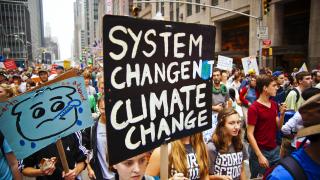
Kazi Ateea, youth climate activist
The time has come. COP22 has ended. But do those who take part in the climate talks understand what is at stake?
By the year 2050, my roots will be gone. Every day the island of Sandwip in Bangladesh breaks down a little more. Bangladesh is set to disappear by the end of the century. Rising sea levels, deadlier storms, increased health conditions – our world is falling apart. This is the reason formy passion. From a young age, I heard stories of the cyclone that destroyed my parents’ homeland. It never came to mind, until recently, that we humans may have been the reason why this storm was so severe. And never before did I realise that I could play a part in changing the fate of this island and that of others.
The future is ours, and truly it is. As millennials, we often think “How did we even end up here?” “How could previous generations put us in this situation, where they are killing our earth?” But it’s difficult to question the choices of those in power when the voices of young people are rarely heard. And in my experience, when I have been invited to the table to talk with heads of states, those in power are more concerned with hearing themselves talk than me. This can cause young people to lose faith in those who have power.
We’ve seen nations destroy themselves in massive civil wars. Climate change is the world’s civil war.
The Future Is Ours campaign plays a crucial role in advocating for youth voices to play an effective role during climate negotiations. The COYs (Conferences of Youth), sponsored by the UN one month prior to the COPs (Conferences of the Parties), have little influence on COP proceedings and run the risk of becoming the symbol of the patronising way young people’s views and aspirations are separated and at times treated as a sideshow.
From what can be seen, young people who have been able to attend COPs are rarely allowed in the actual negotiation rooms, reinforcing the impression that youth voices are of little value.
As the UN Secretary-General’s Envoy on Youth has said, “Space must be created to ensure the voices of young people are truly heard on the issue of climate change.” Millennials need a formal seat at the table of future COP negotiations. This could be achieved by creating a symbolic new entity representing those under 30 and allowing them to take part in COP proceedings with the same status as country representatives.
The greatest risk to humans is humans and human-induced climate change. We’ve seen nations destroy themselves in massive civil wars. Climate change is the world’s civil war. It is something that can still be stopped with immediate action but politicians seem unwilling to do what is needed.
In 50 years, when Sandwip and other islands are under water, the people who are currently making decisions on behalf of us will not be here to see the results. We as millennials need to take the lead and change the direction in which we are headed. We must be the ones to say what happens. The time is now, and the future is ours.
About the author
Kazi Ateea is a youth climate change activist and co-signatory of new climate change campaign The Future Is Ours, calling for those with the biggest stake in the future to be represented at the table of negotiations in future climate change talks.
Photo credit: Joe Brusky/CC

